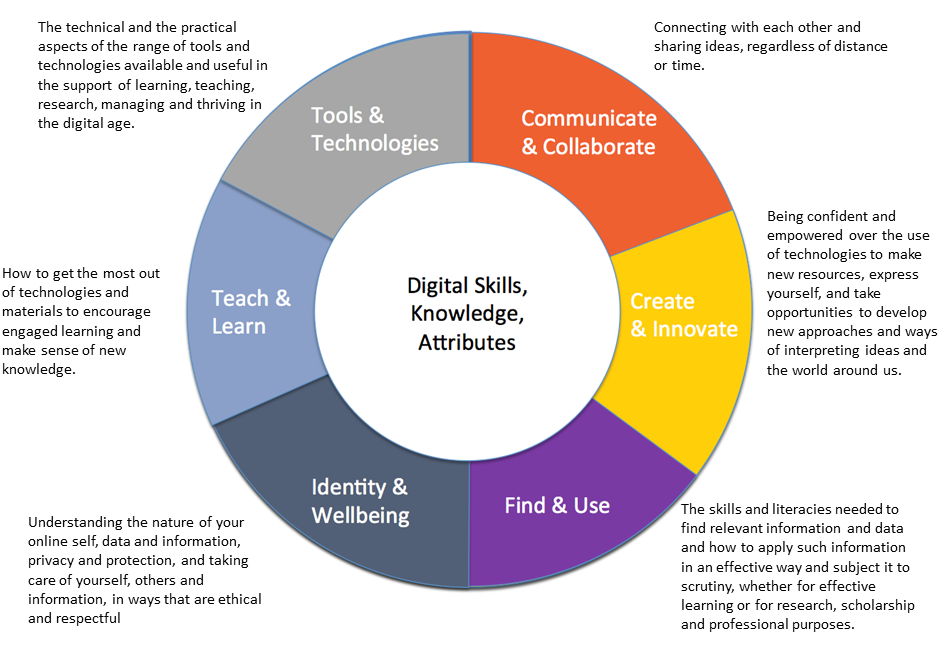My first activity in the Digital Literacies of Teaching module through eCampus Ontario extend mOOC is to consider what the concepts of digital literacies means to me. I say concepts and not definition because I have had to expand my thinking about digital literacy. Prior to the readings for this activity, I would have said someone is digitally literate if they know how to code, can use technology effectively, and are able to relay that information to other people. The JISC (2018) proposes that digital literacies should develop beyond basic digital performance and consideration should be given to the complexities and the situations. Now I would say it is complicated.

I think the image above captures the complexities as well as the potential that digital literacies can provide to a person’s growth both personally and professionally. Chung, Gill & O’Byrne (2013) identify the following 21st Century skills that they propose need to be addressed in web literacy framework “problem solving, creativity, communication and collaboration”. You can see elements of these skills and their intersections with other skills in the image of above. Now I know these skills are important but The question I have is how do I get people excited about it? As an educator I love these types of images but I am not sure that all of my students would.
Doug Belshaw proposes that in order to get people excited about digital literacies framework we have to find out what motivates them. He suggests memes are an intrinsic motivator. Watch below.
I have learned through this activity that the concepts of digital literacies is complicated, changes with time and situations. The exciting part is there is something for everyone if we (educators) include opportunities to develop digital literacies. The British Columbia government (2018) provides a digital literacies framework and examples so that educators will be guided to integrate digital literacies into their lessons. In my opinion, a good place to start is to participate in building and maintaining the digital literacies framework.
References:
British Columbia Government. (2018). Digital Literacy. Retrieved 02 12, 2019, from Province of British Columbia: https://www2.gov.bc.ca/gov/content/education-training/k-12/teach/teaching-tools/digital-literacy
Chung, A.-M., Gill, I. B., & O’Byrne, I. (2013). Web Literacy 2.0. Retrieved from Mozilla.
JISC. (2018, 09). Developing Digital Literacies. Retrieved 02 12, 2019, from JISC Guides: https://www.jisc.ac.uk/full-guide/developing-digital-literacies